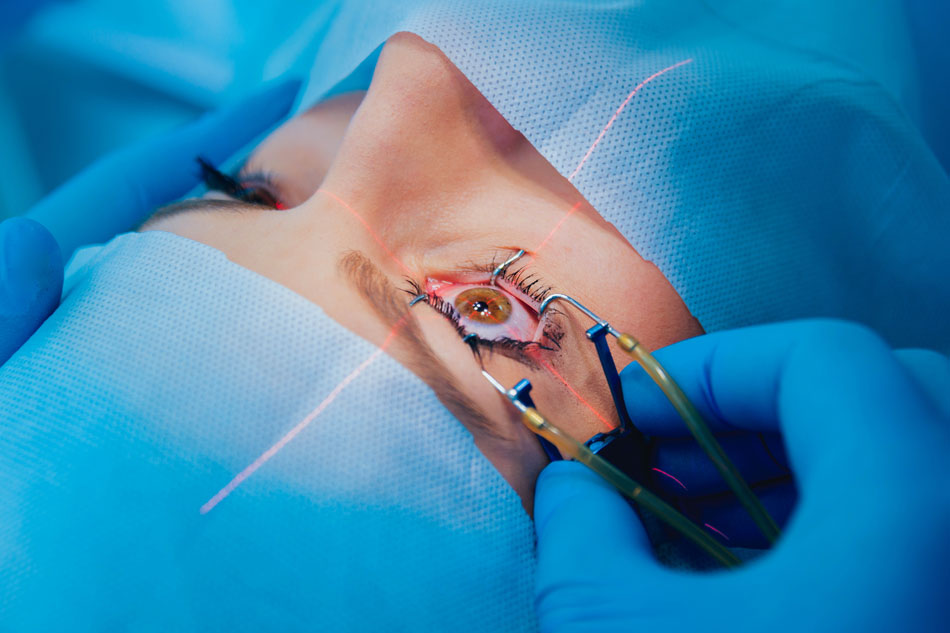Lasik vs. Contacts: 5 Reasons One Is Safer and More Effective

If you need vision correction, you may be curious about more long-term solutions. This may be especially true if you’re sick of having to put on glasses or contacts every day. Have you been considering surgery for your eyes? A laser eye operation might sound better than continual wear of contacts or glasses. But there’s some things you need to consider before making the big decision.
So do you want to learn more about Lasik vs. contacts? Read this article! We've provided five rock-solid reasons to avoid surgery and choose the safer route of contact lenses.
What Happens During Lasik?
Laser eye surgery is a process that corrects refractive errors. It is meant to improve the focusing capacity of your eyes. Basically, it reverses your nearsightedness, farsightedness and/or astigmatism.
Before your designated surgery day, you'll have several optical consultations. Your ophthalmologist will take eye measurements to figure out how to best reshape your corneas for vision improvement. If you currently wear contacts, you’ll need to stop wearing them 2-4 weeks before the initial consultation. Contacts can change the shape of your corneas. So wearing them continuously makes accurate measurements difficult.
During the surgery, the ophthalmologist cuts and peels back a small flap of your cornea. He or she then uses a laser beam to gently reshape each cornea to correctly reflect light onto the retina.
With help, you’ll have to keep your eyes open the entire time. The doctor will numb your eye and use a lid speculum to keep it open. You'll need to stare into a light (not the laser) to focus your eyes and keep them still while the laser works.
It can be uncomfortable and your vision will blur during the surgery. After the procedure, the doctor won't use any stitches on the corneal flap. Instead, you'll get an eye shield to keep you from rubbing itchy eyes or pushing on them while sleeping.
You’ll need someone to drive you home.You should also take several days off work. The healing process takes at least 6 months. But you can resume normal activities bit by bit during that period. Just make sure to avoid strenuous activities for the first week or so.
On the whole, it's a complicated surgery. Even the FDA recommends that some people avoid it.
Lasik vs. Contacts: 5 Reasons to Avoid Surgery

Wearing glasses can be a drag, especially when you want to play sports or do other physical activities. So you’ve opted for contact lenses. But now you need to keep up with lens care and the timely replacements of your contacts.
You may be a new contact lens wearer or someone who's worn them for years. You may have had some discomfort while wearing contacts.Either way, you may be considering Lasik. Regardless of your reasons, before trying Lasik, first consider all the risks.
1. Infection
Laser eye surgery can have complications, like infection. People who wear contacts know that if they use their contact lenses correctly and practice good hygiene, the risk of infection is minimal.
If you’re considering having Lasik surgery, make sure that you follow all the self-care recommendations afterwards. This will reduce the chances of this type of complication. Although the instructions will help you avoid infection, it is impossible to eliminate the risk completely.
2. Cost
Lasik is more expensive than either glasses or contact lenses. You can buy lots of contact lenses over many years before the total even comes close to the cost of eye surgery. A typical laser eye surgery costs roughly $2,100 per eye. And this is one area where you don't want to risk finding the cheapest option! You want quality care for your eyes all the time.
3. Quality of Vision
You may not have perfect vision after eye surgery, although many think they will. Some people who have undergone eye surgery often still need glasses for reading when they get older. Your corneas' response to laser energy determines the final results you get after Lasik.
4. Glare

Seeing glare is another reason why contacts are a better alternative to glasses. After Lasik surgery, individuals may see a halo effect or glare in their vision. While this dissipates in the first few weeks and months, it may not completely go away.
Night vision can be a problem if a patient sees glare or halos around headlights and streetlights. Drivers will find themselves unable to distinguish between objects, making them blind to the road, pedestrians and any obstacles in their path. Safety is a big problem when driving with obscured vision.
5. Quality of Life
Some patients report daily headaches after surgery. Often, these headaches don't go away, even months after surgery. This affliction makes it hard to concentrate or enjoy activities.
Headaches may occur due to other common symptoms after surgery. These symptoms include sensitivity to light and extreme dry eyes. It can also take longer for your eyes to focus, which puts more strain on them. This is what leads to headaches and eye pain.
It's Not Too Late

If you've already had eye surgery, it's not too late. Even if you aren't happy with the results, you may still be able to find a type of contact lens to make your eyes more comfortable and your sight clearer.
Hybrid and gas permeable contact lenses are useful. They both help with problems from eye surgery, like irregular astigmatism. It may take some work with a specialist to get the right fit for your eyes, but it's still possible to live a normal life.
Caring for You
Contacts are a safe and effective vision correction method. There are few risks and little need for a walk on the wild side!
When considering Lasik vs. contacts, make sure to think about all the possible downsides of surgery. These include infection, cost, quality of vision, glare and quality of life. You can wear contacts and still take part in all your adventurous activities. You also get to avoid any risks of surgery.
Contact us or visit our FAQ section for help on ordering your next batch of contacts!